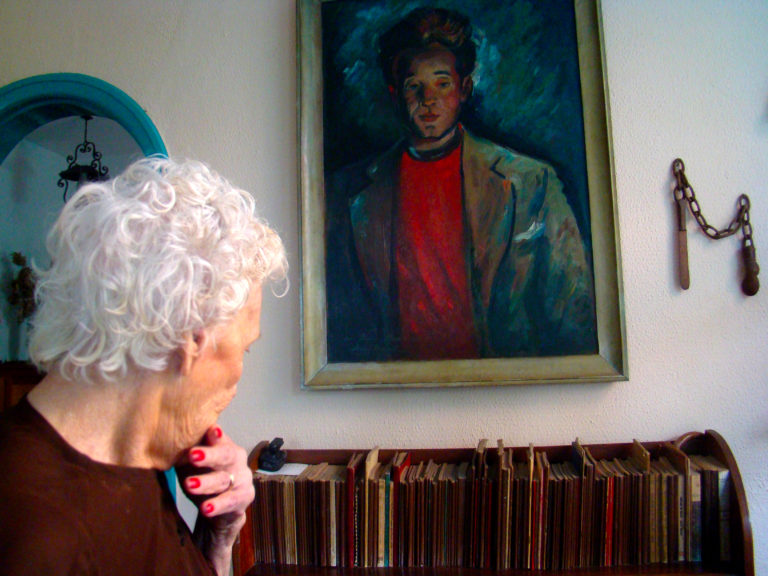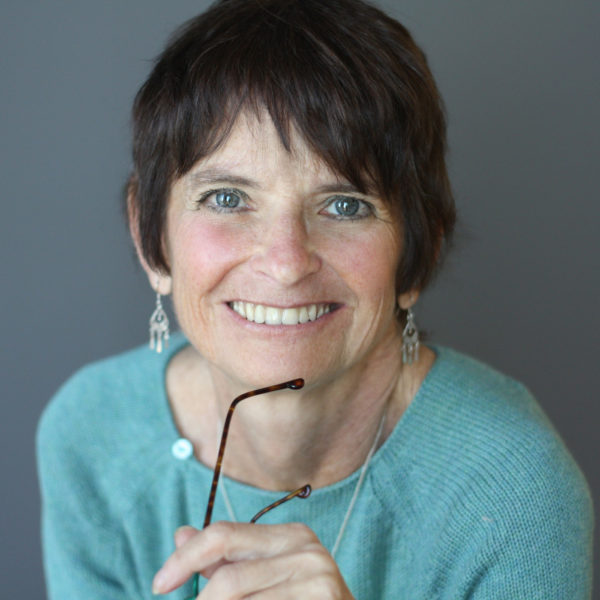
Image by Nany Mata.
Reading Old
“I’m deep into ‘life improvement,’” I wrote to a group of friends in a mass email, “doing things I’ve never done before (knitting lessons, tai chi classes, learning to cook) or haven’t done in a long time (return to reading fiction) — because semi-retirement provides the time.”
How chirpy I sounded, or so I hoped, when in truth I was desolate. Desolate, but determined to be constructive rather than pathetic, to fill my too-empty days with activities that would stimulate my mind, improve my health, and provide social contact. Isn’t that what all the experts say is essential for a comfortable, even joyful, old age?
We all demarcate old age in different ways. The census is clear on the subject, with its “65-and-over” category. That matches Medicare eligibility. Plus, the trainer at my gym rates performance as “excellent,” “above average,” “average,” “fair,” and “poor,” in age categories that end with 50-65. I ask him tartly if that means those of us past 65 are circling the drain. “Mighty ageist,” I note, his 20-something eyes blank, as I gesture around the room where men and women in their 70s and 80s are pumping iron or running on the treadmill.
First, I Googled my way to a knitting store that offered private lessons, and then to “directed knitting,” with a flexible schedule of days and times when people gathered, with an instructor present, and worked on their own projects. My gym offered a 10-session series of tai chi classes, so no research was required.

Learning to cook (since I’m capable of burning hard-boiled eggs by leaving them on the stove until the water is gone and the eggs explode) seemed best done in private. So I bought a cast-iron skillet, two good knives, a baking sheet, and downloaded the New York Times cooking app, which ranks its recipes in order of difficulty, and actually has a few marked “easy.”
I never imagined that finding a reading group would be hard, but after weeks of hunting I discovered that longstanding groups usually don’t want new members, signs posted in independent bookstores yielded no replies, people have very different tastes, or they prefer to read alone, as I always had. “But the ‘reading switch’ has turned off in my head,” I wrote to my friends in the email. “I want to turn it back on and think the group process would be both a jolt and fun. I’m open to any and all suggestions,” I continued, “but in a perfect world, this is what I’d prefer:
· Bi-weekly (not Mondays)
· Contemporary literary fiction (highly negotiable)
· Actually talk about the book (not kids, sick parents, broken hearts, etc.)
· And not turn meetings into cooking contests (Coffee, tea, wine, nibbles, etc., but not meals)”
The replies were kind, but there were no takers.
Then coincidence intervened.
I stumbled upon this in Slate and knew in a flash that these were the kind of books I wanted to read. Some I already had, but how interesting it could be to return to them in a group of people also contemplating their own impending old age. So I turned to social media, this time my own Facebook page, and crowd-sourced:
FB friends in NY of a “certain age:” Let’s come together to read, as a group, these gorgeous essay collections and fiction by the very old, who have much to teach us. Besides those below there is “Memento Mori” by Muriel Spark and “Essays Past 80” by Donald Hall, “As We Are Now” by May Sarton, “Olive Kitteridge” by Elizabeth Strout, etc. Who’s interested?

This time, the response was overwhelming. In the space of two days, more than two dozen people had replied, “Count me in!” Some were local and others scattered about the country. As I write this column, I’m mulling over whether to assemble the fellow New Yorkers face-to-face, or to try something virtual, via Skype or on a group Facebook page, like the one for New York Times alumni, like me, which has recreated the water cooler we lost when we took buyouts, were laid off, or chose to work elsewhere.
Then coincidence intervened yet again. Ann Burack-Weiss, author of The Lioness in Winter: Writing an Old Woman’s Life was scheduled to read at Columbia University, where she had been a professor of social work and still taught narrative medicine. Ms. Burack-Weiss told a surprisingly large crowd on a night of unrelenting rain that she had concluded, at 80, that literature was a better way to teach up-and-coming social workers who intended to work with the aged.
Was more coincidence plausible? During the Q&A after Ms. Burack-Weiss’s presentation, she mentioned that she would be leading an upcoming reading group at the Center For Fiction, called “Reading Old Age.” It would include works by Muriel Spark, Penelope Lively, Elizabeth Strout, and Donald Hall — a book every three weeks from mid-March to mid-May. Even if I formed my own group, and even if the works overlapped, I found the opportunity delicious.
Alas, the first two sessions coincided with my tai chi class. So much for being bored and desolate. Now I was over-subscribed. So I’m going to try to find Ms. Burack-Weiss. Maybe she’ll let me come just for the second half.
